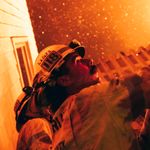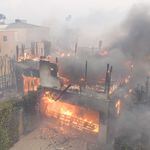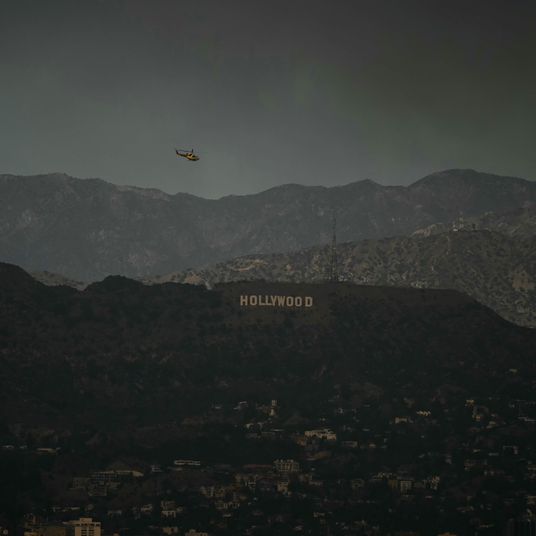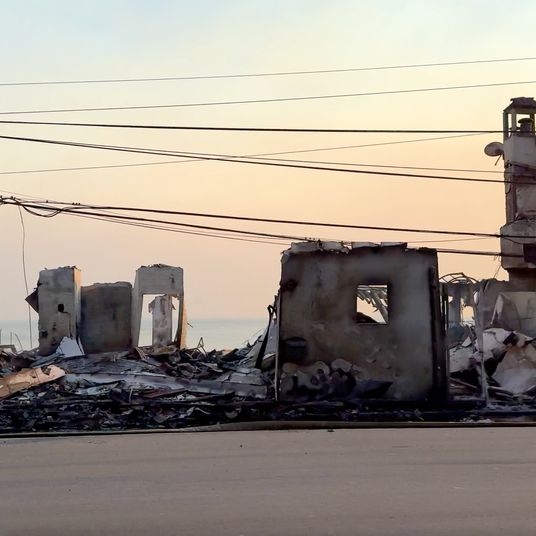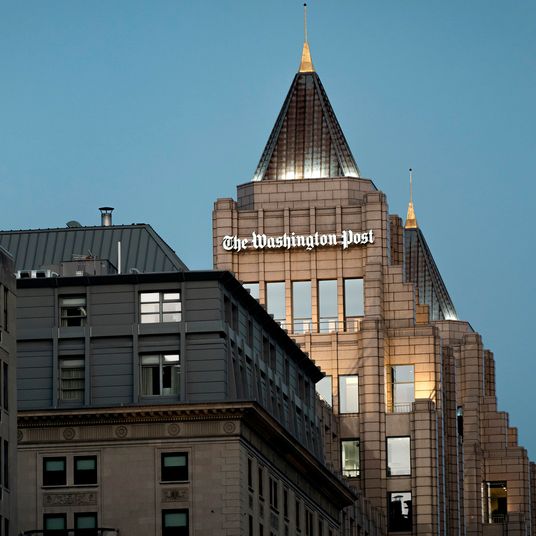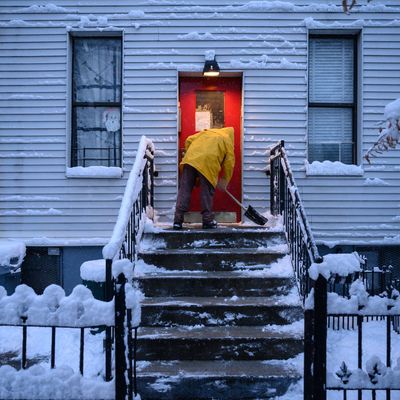
New York Metro Weather, a favorite among the city’s meteorological cognoscenti, prides itself on dispensing hype-free forecasts. But this winter, there’s been very little for anyone to hype in New York City and environs. After a brief freezing-cold spell in December, the city has experienced an abnormally mild January, which, depending on your perspective, has been refreshing, unsettling, or just depressing. (For those in the latter camp, Europe’s much more extreme heat wave and recent climate data has only compounded the despair.) The warmth has also brought with it a conspicuous lack of snow. And with no flakes on the horizon, NYC may soon be in record territory. I spoke with John Homenuk, the founder of New York Metro Weather, about the odds that this winter’s trajectory will change, why the forecast has been so quiet thus far, and how climate change plays into all the 50-degree days.
We’ve now gone 316 days without measurable snow in New York City, the fourth-longest streak ever, and approaching the all-time record of 329. I can’t remember which year that was set.
That was set in 1973, which is actually the least snowy winter on record in New York.
Will it ever snow in New York again?
I think it’s safe to say that we have not seen our last snowflakes. The thing is the pattern has just been hostile toward snow, particularly along the coast — there’s been plenty of snow in the interior Northeast. The meteorology behind it is that we got very unlucky in late December. I’m sure you remember it got very cold. It was just kind of the luck of the draw — we didn’t get a storm where we needed it to be. And then after that, the pattern really took a turn for the worse. We had very mild Pacific air flowing into the country, the same jet stream that brought all that rain to California. All that mild air just took over the country. That being said, there’s a long winter ahead, a lot of time left. I think we’ll have plenty of chances to see snow here in the next couple weeks.
As a snow lover, those are comforting words to me. I did see that it may start to turn colder soon.
100 percent — at least getting us closer to normal or slightly below normal. You always have to remember that normal this time of year is pretty cold. We can get snow with normal temperatures. And the upcoming pattern is active, so I think there will be chances and opportunities. Our peak climatology for snow is from very late January into early to mid-February.
Whenever there’s an anomalous period of warmth, one’s mind goes to climate change. I know that’s a tricky thing for a meteorologist to factor in. How do you think about warming as it relates to the lack of snow this winter, and how do you try to incorporate it in the way you communicate with the public?
It’s very, very difficult. Obviously I’m a firm believer in the human impact on the climate. I fully believe that’s happening. A lot of people want to hedge on that — I’ll go on the record.
A lot of meteorologists want to hedge on that?
Well, sometimes I’ll read or hear people and they’ll skirt the question a little bit. They’d rather talk about the meteorology of it and not necessarily dive in.
I knew that was true a few years ago, but thought it would have died out by now.
I still encounter it. Personally, I think everyone knows what’s going on at this point. To me, the question becomes more complex when you dive into how it’s affecting our sensible weather. I’ll offer the flip side of it. When we look at the effects of the climate — one of the things we saw in the early 2010s, when we had a ridiculous stretch of snow in New York, was how the climate was making the waters warmer off the coast and allowing for stronger coastal storms to form, which in turn gave us historic snowy winters from 2009 to 2013. And even in 2014, we had this big polar vortex event, and a lot of that was tied to — is the climate changing? Is the polar vortex starting to move around more than usual? Things like that.
I think the jury is still out on how the changes that are occurring will impact our chances for snow or cold. What I will say is, I don’t necessarily think it’s a coincidence that when you look at the last 10 or 15 very long stretches in New York without snowfall, more than 50 percent or 60 percent of them are within the last 10, 20 years. And that data goes back to 1890 something.
It doesn’t sound like you think future winters will automatically see less snow than what we’re used to.
Exactly. One of the theories that came up in addition to those warm water temps leading to stronger storms was what happens in the Arctic. Like, do we start to disrupt the Arctic just enough to start moving that air around so it’s almost like we get the opposite of what you would expect, which is that for a while the winters in New York turn colder and more extreme? There’s a lot of different angles and possibilities, and I think it’s just too early to tell how that’s going to evolve.
New York Metro Weather maintains a popular and playful social-media presence. What’s the reaction from your followers about this mild winter? Has it been mostly positive or mostly dismay?
I would say that on Twitter and Instagram, it has been largely dismay, probably 80/20. The variability in what people enjoy is what makes it fun. We’ve gotten some comments from people that are like, “This is great. I haven’t had to take my shovel out once.” There was one yesterday or a couple days ago that really made me laugh, which was like, “If you ignore the possible crisis we’re in here from a weather perspective, this is actually pretty great. ’Cause I’m sitting outside drinking a coffee right now.”
But there are a lot of snow lovers in New York. There’s a magic to it, right? The city turns into something a little bit different when there’s a big snowstorm. At least for a couple hours before it becomes black sludge.
It’s great for 12 hours and horrible for three days, but those 12 hours are really magical.
And there’s nostalgia associated with it too. I think most people are just kind of bummed out. That’s the resounding thought.
This interview has been edited for length and clarity.



